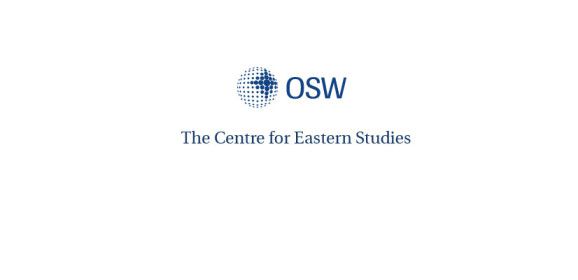Section: The Centre for Eastern Studies (Poland)
Sweden: reinventing total defence and a proactive stance in NATO
On 17 December, the Swedish parliament adopted the country’s defence resolution for 2025–2030. This is the first document to outline the primary directions for military cooperation and the development of Sweden’s defence capabilities in both military and civilian spheres following Russia’s invasion of Ukraine and Sweden’s...
Slovakia’s actions in preparation for the expiry of the Ukrainian-Russian transit agreement
On 4 and 17 December, Slovakia’s Minister of Economy, Denisa Saková, travelled to St. Petersburg for talks with Gazprom’s leadership. The minister was accompanied by Vojtech Ferencz, the CEO of Slovenský plynárenský priemysel (SPP), Slovakia’s main gas company. The Ministry of Economy and SPP have declined to disclose the...
The prospect of losing Pokrovsk – a blow to Ukraine’s metallurgical sector
On 12 December, Metinvest, a corporation owned by Rinat Akhmetov, announced that it had suspended operations at one of its coal mining facilities (shaft no. 3) in the village of Pishchane near Pokrovsk in Donetsk Oblast. The decision was made in view of the deteriorating security situation, which included intensified shelling and the advancing...
The Russian Challenge
Russia’s war of aggression against Ukraine is in a critical phase: The Russian military is making territorial gains while Western support for Ukraine is stagnant. Add to this the massive uncertainty about the future US policy. In this moment, we need determination and political leadership. Precisely because Warsaw and Berlin have hitherto...
Russians and North Koreans pushing Ukrainians out of Kursk Oblast. Day 1028 of the war
…read more Source:: Centre for Eastern Studies...
Moldova: an impending energy crisis and its political implications
Moldova will declare a state of energy emergency on 16 December due to an impending crisis caused by Ukraine’s decision not to extend the transit contract for Russian gas after 2025. Meanwhile, the separatist region of Transnistria heavily relies on these gas supplies (see ‘Game over? The future of Russian gas transit through...
Russia moves to cut off Ukrainian logistics in the Donbas. Day 1021 of the war
…read more Source:: Centre for Eastern Studies...
Ukraine’s new ministry for communication with the diaspora
On 3 December, the Verkhovna Rada of Ukraine appointed Oleksiy Chernyshov as Deputy Prime Minister and head of the newly established Ministry of National Unity, which was formed through the reorganisation of the former Ministry of Reintegration of the Temporarily Occupied Territories. …read more Source:: Centre for Eastern Studies...
Trump’s further appointments: a peace plan for Ukraine and the threat of a tariff increase?
In the last days of November, Donald Trump tapped further candidates for positions in his new administration. The nomination of retired General Keith Kellogg as US special envoy for Ukraine and Russia suggests that although the new president’s goal will be to seek an end to the war in Ukraine, this does not necessarily involve far-reaching...
Equipment problems in the Ukrainian army. Day 1014 of the war
…read more Source:: Centre for Eastern Studies...



